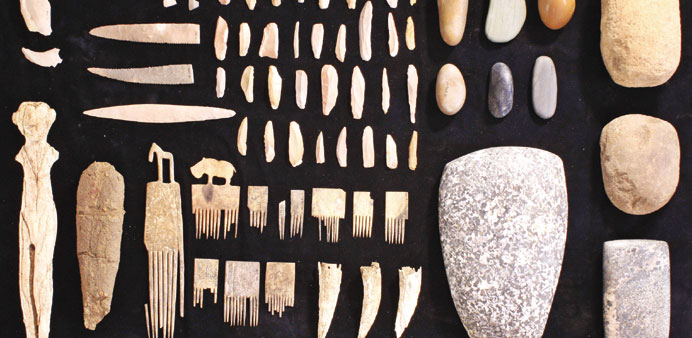A handout picture released by the Egyptian ministry of antiquities yesterday shows ivory combs, tools, blades and arrowheads discovered in the tomb.
Egypt said yesterday archaeologists have unearthed a 5,600-year-old preserved tomb and mummy predating the pharaonic First Dynasty, a discovery that will shed new light on the pre-dynastic era.
The tomb was built before the rule of king Narmer, the founder of the First Dynasty who unified Upper and Lower Egypt in the 31th century BC, the antiquities ministry said in a statement.
The tomb was discovered in the Kom al-Ahmar region, between Luxor and Aswan, on the site of ancient Hierakonpolis, the city of the falcon, which was the capital of the Kingdom of Upper Egypt.
The archaeologists found an ivory statue of a bearded man and the mummy of the tomb’s owner, who appeared to have died in his late teenage years, the ministry said.
They also found 10 ivory combs as well as tools, blades and arrow heads, it said.
The tomb’s preserved state will provide new information on pre-dynastic rituals, said Renee Friedman, the head of the multinational archaeological team.
The tombs of king Narmer and king Ka, a pre-dynastic pharaoh who paved the way to Egypt’s unification, were previously discovered in Hierakonpolis.

